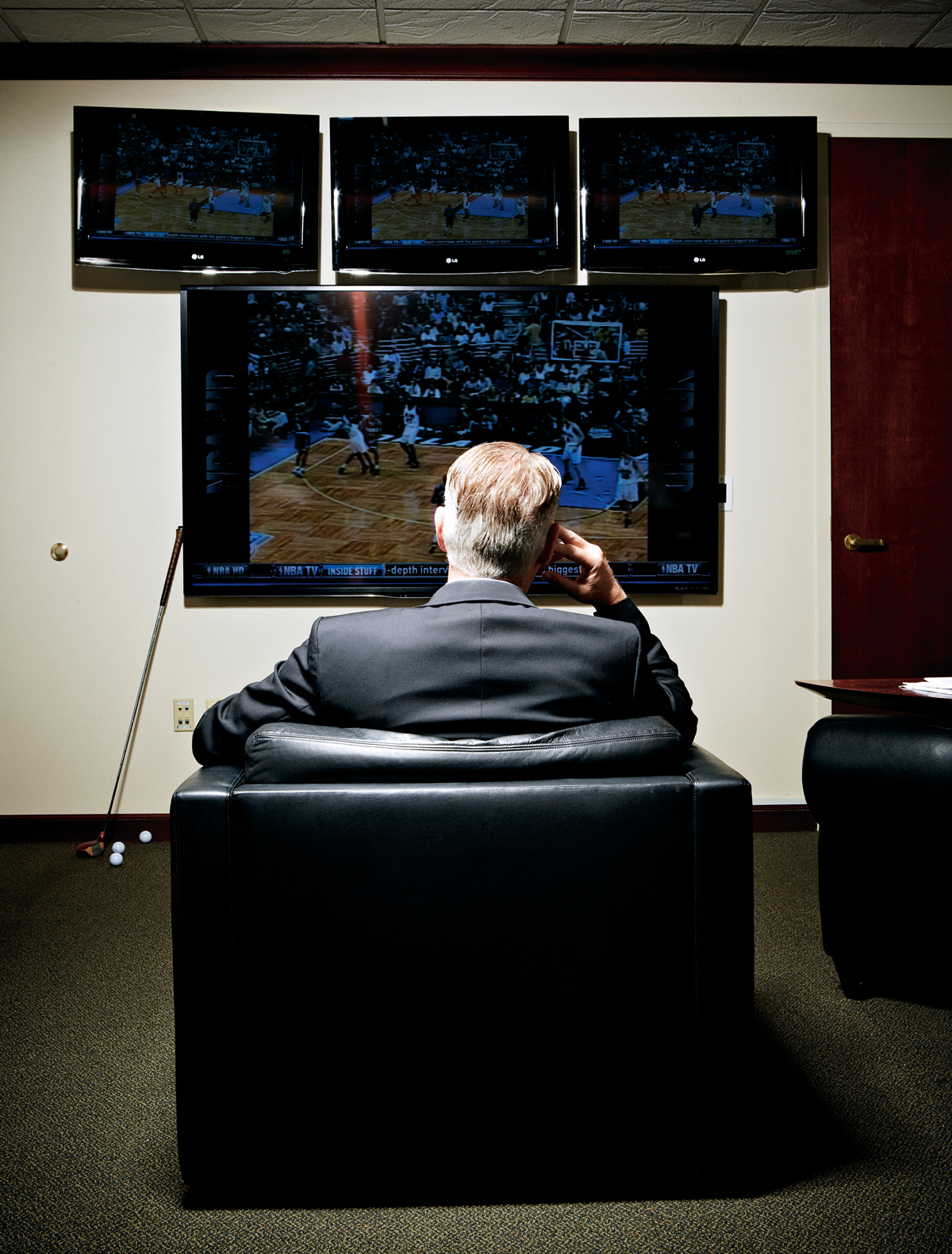Danny Ainge Goes Back to the Drawing Board

Method Man: Before drafting a player, Ainge and his staff will have watched every possession the prospect played during his final year of college.
Ainge may lack a master plan, but that’s not to say that he and his front office haven’t pored through countless scenarios and possible outcomes. He’s stockpiled the assets and created the flexibility he wants—from there he’ll take his chances. That tends to make people uneasy, but Ainge shrugs. Even Celtics legend Red Auerbach caught some breaks.
“Building a championship team is blown a little bit out of proportion,” he says. “We can all say there’s been pretty amazing luck in every championship team ever made. Whatever the story is of how Red landed Bill Russell, there was some good fortune there. And Bill Russell turned out to be Bill Russell.”
In the interim, the Celtics will almost certainly struggle. The main criticism of Ainge’s plan right now is actually that they won’t be bad enough to take advantage of what’s expected to be a deep draft next spring. In other words, that they aren’t tanking to “win,” as one of the league’s worst teams, a top pick.
“It’s easy to say that, but it’s hard to live that,” Ainge says. “You have sponsorships, you have television, you have players that you’re trying to develop that become of no value when your team just can’t win a game. You have season-ticket holders that don’t get their value. You have coaches that get critiqued and blamed. There’s nothing good about losing except the possibility of a good draft pick.”
Some have suggested that Rajon Rondo should be dealt so the team can truly bottom out. But Ainge says he wants to see how the mercurial point guard adjusts to life asthe team’s undisputed best player. “There’s a lot of questions that we don’t know the answers to,” Ainge says. “And so I think that’s always fun.”
Ainge is also all too aware that tanking can be a bad bet. In 1985 the NBA instituted a lottery designed specifically to prevent the practice. All of the non-playoff teams are given a shot to win the top three picks—the worse you are, the better your odds—but even the bottom team has only a 25 percent chance of getting the top selection.
In 1997 the Celtics assembled the worst team in franchise history in an obvious ploy to draft Tim Duncan with the top pick. The Ping-Pong balls bounced wrong, and it would be five more years before they made the playoffs again. Ten years later, with Ainge in charge, the draft prizes were Greg Oden and Kevin Durant, and the Celtics willingly went into free fall after Pierce suffered an injury. They wound up with the fifth pick. By then Ainge knew he needed a backup plan, and he was eventually able to turn his collection of interesting assets into Garnett and Allen.
At that time, Ainge placed his trust in coach Doc Rivers, despite many calling for his head. Now, Ainge has gone all in on another coach: His final big splash of this summer was the hiring of 36-year-old Brad Stevens from Butler University to replace Rivers. As is typical with Ainge, the move caught almost everyone off-guard, but was, in truth, long in the making. Ainge studied Stevens for years, scrutinizing his Butler teams and picking the coach’s brain about players around draft time. Ainge likes to know how people think as much as what they think, and he was drawn to Stevens’s analytical approach, as well as his low-key demeanor.
Ainge had observed Stevens up close before, too. When Ainge attended the 2010 national-championship game between Butler and Duke, moments before tip-off, he turned to Celtics co-owner Steve Pagliuca, a Duke alum, and said, “There’s the best coach in college basketball.” Pagliuca thought Ainge was referring to Mike Krzyzewski. He wasn’t.
Stevens’s name was discussed by several other NBA teams with coaching vacancies, but nobody else was prepared to offer what Ainge could: an unprecedented six-year contract. No other coach in the NBA has a six-year contract. Not one. On the one hand, it’s audacious—college coaches with no NBA experience have often faired poorly. And on the other, it virtually guarantees that Stevens will have time to grow into his job along with his players, who now know they won’t be able to easily run him out of town. It’s also classic Ainge: Even if Stevens struggles, it only means that he needs more time.
As the Celtics enter a new phase that will be marked by an inexperienced roster and a rookie coach, Ainge knows that his role in the organizational patriarchy may have to change. He’s not about to become Bill Fitch, but the days of playing indulgent grandfather to Rivers’s tough-love dad, he says, appear to be over: “Maybe I need to be a more stern grandfather now.”
“It just feels like now there’s a freshness,” Ainge says. “It’s a restart, a reboot, and we’ll see if we can do it again.”


